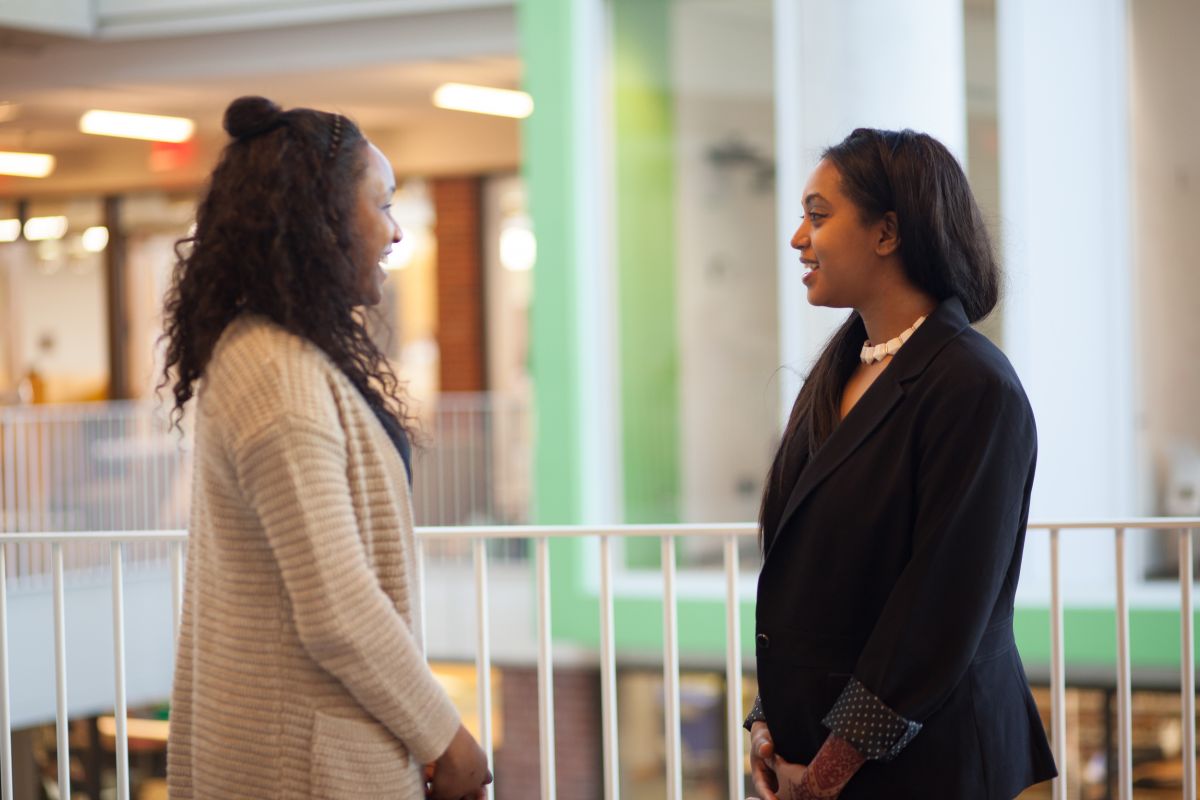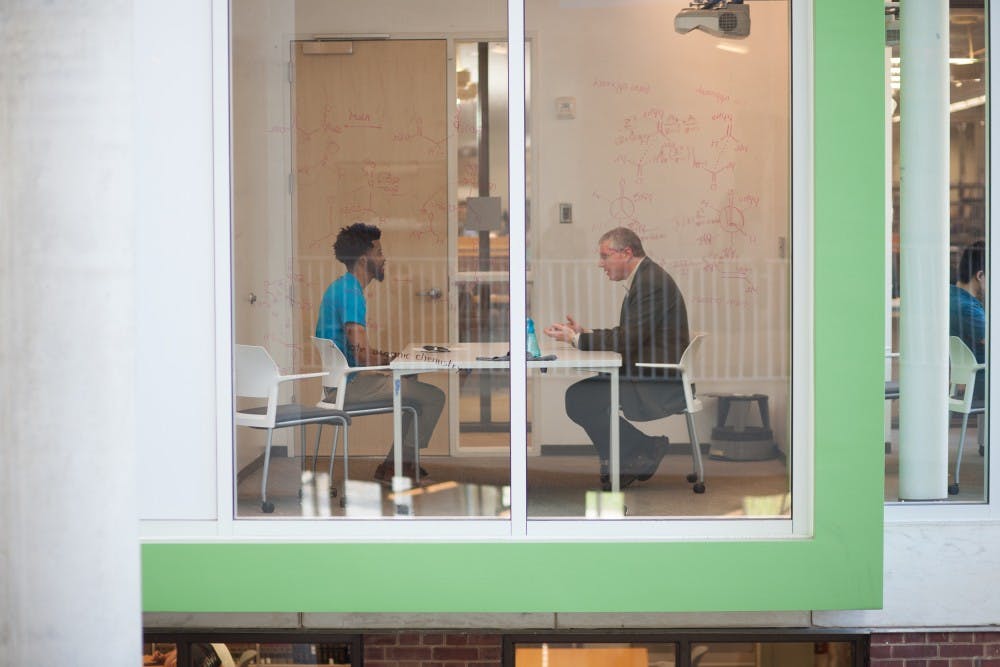The Human Library, an event showcasing a diverse “library” of humans who have faced stigma and discrimination, took place in Brody Learning Commons on Sunday. The event was brought to campus to raise awareness of discrimination against underrepresented populations and to promote dialogue on campus.
Junior Selma Ahmed, who proposed the initial concept and organized the event, explained the origins of the Human Library. The idea is similar to checking out a library book. Participants “sign out” people who identify with certain backgrounds and through a conversation with their “book,” participants become more informed about diverse experiences.
“[The Human Library] is actually an organization that started in Europe some years ago as a platform to fight for causes related to discrimination, stigmatization and promoting social awareness. It was in response to a hate crime that occurred in Denmark,” Ahmed said. “They organized groups of people that identified as underrepresented stereotypes. [Human volunteers] basically have very frank conversations with people, our peers and the Baltimore community to dispel any notions that exist.”
Ahmed listed some notable “books” at the Human Library this year.
“Some of our titles are really unique,” she said. “We have someone who is polyamorous, we have someone who is an atheist, we have a Muslim on the other spectrum, we have a gay pastor — a really eclectic group of people.”
Ahmed introduced the Human Library last year through The University’s Idea Lab, a crowdsourcing website that attempts to produce innovation.
“I initially put this on spontaneously. I was sitting in Brody last year... and there were these girls with laptops asking people to look at something they had proposed, and it hit me that I might as well do what they’re doing,” Ahmed said. “She showed me what was on her laptop and said, ‘Yeah, I’m actually proposing this grant for the Diversity Innovation Grant, it’s part of Idea Lab.’ And I thought that was something I was interested in, and I submitted this idea. The deadline was in three days, and within those four days I got 200 votes.”
Shannon Simpson, the student engagement and information fluency librarian who assisted Ahmed in organizing the event, spoke about why she decided to collaborate with Ahmed and why she feels the event is an important contribution to the Hopkins community.
“I reached out to her because I’d always wanted to hold a Human Library. I firmly believe that having open conversations with people that are different from us will broaden our perspectives on the world,” Simpson said. “Everyone’s coming out of the rooms beaming, and people are going and taking out more books having tried it once. I think that it’ll prove to be a very cathartic experience for both the books and the readers.”

Junior Kathleen Condy, a human book who represented misophonia at the event, spoke about her experiences with her disorder. Misophonia, meaning “hatred of sound,” is a rare disorder in which specific sounds trigger negative reactions in an individual. For Condy, sounds such as coughing, throat clearing and sniffling cause her physical pain.
Condy spoke about the difficulties of living with misophonia in her day-to-day life when those around her do not know about her disorder.
“The anticipatory anxiety is the hardest thing — the anxiety of going outside everyday. When I go outside, I know I’m going to be in pain. I know it’s going to happen, but I have to do it anyway,” Condy said. “I have an FM system I use during class, so basically the professor has a microphone and I have the receiver, and I listen through the whole lecture through earphones, which blocks out a lot of the ambient noise. It’s very limiting socially as well. I wasn’t really able to go to parties, I wasn’t really able to make friends easily. There’s nothing you can really do in a situation like this but do your best.”
Ahmed further explained the significance of the event and its importance in light of contemporary local and global issues.
“With the racial tensions that are happening right now in the United States and in Baltimore especially, I noticed in our community at Hopkins an isolation of different groups and a general lack of awareness about what goes on in the real world,” she said. “We kind of just focus on our school here and don’t actually take in the diversity that exists around us, whether it’s in Baltimore or at our campus. I just thought it would be really cool to make everyone engage and learn something because I honestly learn the most from people and from talking to them.”
Tiffany Sanchez, associate dean of student engagement and a member of the Diversity Leadership Council, also helped Ahmed organize the event. Sanchez spoke about her hope that the Human Library will help promote continuous dialogue throughout the University’s student body.
“I often will say that there’s absolutely no reason for ignorance. Sometimes people will say that they just don’t know or that they’re ignorant about a particular thing,” she said. “[The Human Library] is an opportunity in a place where someone has agreed to talk about some aspect of their identity and be open to questions... When you can have an honest and open conversation and not be afraid of hurting someone, I think that can be a really good opportunity for learning. Hopefully the people that came today will continue to have those kinds of conversations.”





